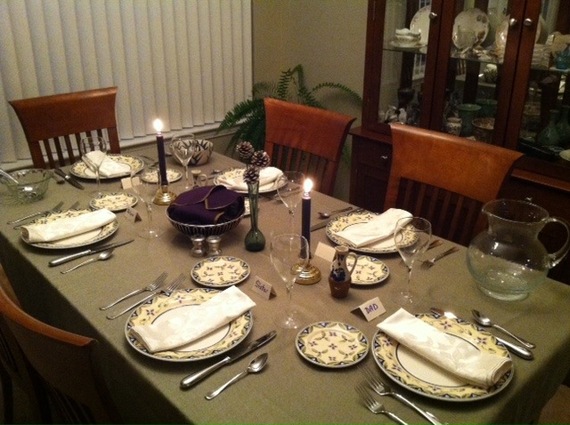Our attitude toward confusion and change affects our ability to evolve in our lifetime. Throughout our lives we're offered daily opportunities to learn and to grow. These sometimes involve unexpected changes that can throw us into confusion. How we respond is our choice. Learning to pause and respond thoughtfully, rather than react automatically, is a deeply empowering act. It can change our life course and keep us in the field of possibility.
Reacting with preconceived ideas may help us avoid confusion and give us a sense of control, but it also keeps us from growing.
To respond quickly with answers we believe are correct gives us a sense of certainty and feels reassuring. We may believe we'll appear less sure of ourselves or less knowledgeable if we take time to think and reflect. Living the way we always have, moving through life on automatic pilot with familiar responses, seems easier. One thing is for sure -- it keeps us from feeling confusion.
At the same time, though, our lives are complex. Some of the ideas and answers we learned from previous generations often don't fit the current reality. If we have pat or preconceived answers, or if we avoid thinking and talking about ideas, we may keep ourselves from addressing the issue at hand.
When we're young, we're likely to cling to simple answers -- ideas that fit into neat categories, like right and wrong. As we mature, we learn to trust that we are capable of complex thinking -- a kind of thinking that in its initial stages brings confusion. For instance, we've seen how the technology available to us today is evolving at a phenomenal pace, constantly presenting us with new ways to engage with the world. In response, some people express reluctance about learning different ways to use their devices or changing their routines. Others welcome every opportunity to communicate in new ways. Those who fear being uncertain or not knowing the right answer, may be missing the gold mine of insight and connection that is just beyond their fear.
Life always offers opportunities to revisit our beliefs.
Sometimes confusion shows up when we're faced with forms of family relationships that are unfamiliar, or with a new family structure that conflicts with our current belief system. In the ever-changing landscape of the modern family, we have opportunities to react on the basis of beliefs handed down to us or to revisit those beliefs to see if they serve our present life and relationships. Preparing for or anticipating holiday gatherings, for example, can cause us to reflect on the invitations offered and who might be present at the family dinner table.
When we're willing to look at long-held beliefs and sit with the confusion that comes with re-examination, we're taking another step toward responding mindfully and opening ourselves to the possibility of change.
Much as we might like life to stay the same, change is a constant.
The gift of change is that it can disrupt the automatic nature of our responses and create an opening for questions. The complex situations in today's world require more from us than quick, reactive, certain, or judgmental responses. As an alternative, we can choose to reflect.
Most of us are finding, for example, that the attitudes and ideas we once held about personal fitness and food choices need to be revised as the years add up and medical research reveals new discoveries. We can learn to approach our current challenges with the understanding that rigid habits and the formulas we like to rely on need to be reviewed periodically to see if they fit the current situation.
When we ask new questions, we become willing to receive fresh information that can encourage us to explore further. We needn't be afraid to revisit and re-examine the beliefs we currently hold. It's okay to change our minds.
Challenging situations draw attention to what we can learn, what we can examine, and what changes we might make in our thinking.
One form of courage is to be willing to examine our thoughts in light of current information. Being brave means being willing to be reflective, to be curious, and to consider additional perspectives. It's being able to say, "I'm not sure. I am thinking about it, though." It's being willing to enter into a respectful and civilized conversation, even though it may feel uncomfortable. Brave can also mean taking new actions or first steps that feel unfamiliar.
For me, living in discovery means having the willingness to explore the frontier of my own mind. I'm realizing that the certainty of clear-cut answers that may have served former generations may no longer serve me. It is comforting to know that I can trust the experience of confusion to lead me to greater insight for my life.
There is power in temporary confusion because insight often lies just beyond it.
The more we practice honoring uncertainty, the more we allow it to be a familiar state that we understand is not permanent. Every attempt adds to our learning. We can tolerate uncertainty when we recognize and accept that this is just a moment in time. Remaining flexible in these situations furthers our ability to evolve, grow, and shift with every change.
